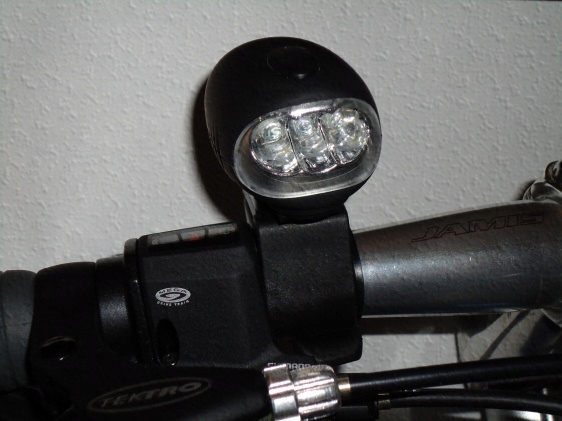
Whenever the local media decides to “investigate” bicycling safety in Boston, I feel the need to tune in, just to see where cyclists stand with the media and the public. Such an event was recently held by the Boston Globe as part of their “Globe Talks” series.
They put together a panel of cycling experts who discussed major issues related to how safe or unsafe it was for cyclists to ride on the streets of Boston. The panel consisted of the City of Boston’s Bike Czar, the Executive Director of the LivableStreets Alliance, the Boston Transportation Department’s Director of Policy and Planning, a local bicycle commuting advocate and a lawyer who specializes in representing cyclists who have been injured during run-ins with cars.
I did not watch this event live. As with most things that happen these days, a video of the broadcast was made available online, and I watched it while doing some less mentally challenging activities.
I agreed with much of what was said. Why wouldn’t I? Every member of the panel was pro-cycling.
They brought up the usual issues concerning the difficulties of riding in traffic such as the negative attitudes of drivers towards cyclists, problems with cyclists getting doored and helmet use.
Since the discussion was about safety, the subject of helmets was raised. The moderator, and most of the panel, regarded wearing a helmet as a way to increase a cyclist’s safety.
Only one panelist spoke out against helmets as a safety measure — the lawyer. He came across as believing that helmets did not make a cyclist safer, although he didn’t really explain why. An assertion like that, out of the blue and on a public forum about bike safety, was a bit perplexing.
While I’m not in favor of making helmet use mandatory, I do see value in wearing a helmet, particularly when riding in traffic. It won’t protect a cyclist against many types of injuries related to a collision with a car. But, it will reduce the likelihood of head injuries.
Still, this lawyer’s angle was baffling; he was supposed to be defending cyclists who had been injured by cars, but he was saying things that would antagonize anti-cycling proponents. Had I been him, I probably would not have spoken out against helmets, or at least would have toned it down by saying that helmets alone do not make a cyclist safe.
As the conversation moved on from this point,the same lawyer made another unusual comment. As “proof” that not wearing helmets was not what made cyclists unsafe, he brought up the issue of cyclists not having lights on their bikes while riding at night.
Front and rear bike lights are required by Massachusetts law. Cyclists are supposed to turn them on just before sunset and use them until sunrise. With respect to this law, the lawyer-panelist said that he sees a lot of bicycles without lights. As an aside, I don’t know where he rides because, where I ride, I see a small number of cyclists without lights.
He admonished cyclists for not using lights and cited this lack of lights as the cause of most accidents. A statement like that will certainly draw attention away from helmet-less riders as the ones getting into accidents, but it makes cyclists look like the bad guys.
I was hoping he would leave it at that when he turned towards the city’s Bike Czar, as if expecting her to agree with him, and asked why the police don’t issue citations to cyclists who ride without lights on their bikes. When she didn’t reply, he turned the other way and addressed the same question to the rest of the panel, all of whom remained silent.
No one would think it was wise to ride a bicycle after dark without lights. However, many people who are new to cycling don’t know that the law requires them to have lights on their bikes. Therefore, issuing citations to cyclists without lights would not be a good way to curb this practice. Education would be preferable because it would reach a larger audience.
Maybe it would help if bike store employees told customers about these laws when they were buying new bikes. But, even if they did, only a fraction of the bikes sold each year would be covered since many bikes are bought used, directly from the bike’s owner. Conversations about safety and laws don’t usually come up during such transactions.
None of the panelists agreed with the lightless bikes causing accidents argument, probably because riding without lights only accounts for a small percentage of total incidents and because making such an argument blames cyclists for the negative encounters they have with cars. Surely, this could not have been the bike lawyer’s intention.
Although I don’t know this bike lawyer personally, I do know of him. I would have expected him to say more pro-cyclist things rather than antagonistic and cyclist-blaming things. And, I would expect a lawyer to be familiar with the major causes of cycling injuries.
In Boston, dooring accounts for the largest share of cycling injuries. And, most car versus bicycle incidents happen in the daytime, not at night — so I really don’t know what he was getting at.
Perhaps the lawyer was just nervous about being on TV and, consequently, didn’t articulate his points well. If so, this is a good example of why preparation for interviews is necessary. Fortunately, most of the audience appeared to be pro-cycling, judging by the comments they made.
After hearing this interview of local cycling advocates, I am more convinced than ever that cyclists must talk among themselves and get on the same page about what they will say in public venues. Otherwise, cyclists may end up shooting themselves in the foot while trying to be clever in front of a camera.



